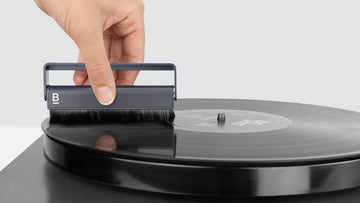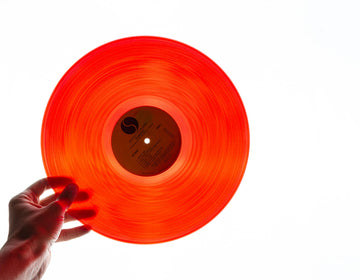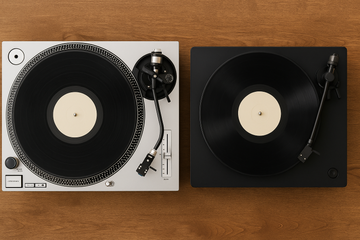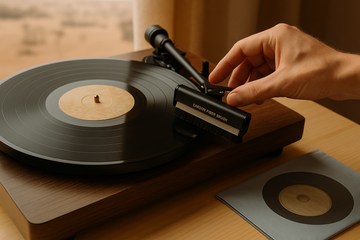Understanding the Importance of Vinyl Record Care
Vinyl records hold immense value, both in terms of the memories they capture and their monetary worth. As collectors will tell you, certain vinyl records can become incredibly rare and highly sought after, making them valuable assets. Additionally, vinyl records offer a unique listening experience that digital formats cannot replicate, thanks to the physical interaction between the stylus and grooves. This interaction is susceptible to damage and deterioration, highlighting the necessity for proper care.
The Value of Vinyl Records
Vinyl records are not just pieces of plastic with music etched onto them; they are cultural artifacts. Many record collectors treasure vinyl records not only for the music but also for the cover art, liner notes, and historical context they provide. These physical aspects contribute to the overall value and allure of vinyl records. Preserving them goes beyond simple maintenance; it is a way to safeguard a piece of musical history.
Imagine holding a vinyl record from the 1960s, feeling the weight of the vinyl in your hands, and admiring the intricate artwork on the cover.
As you carefully slide the record out of its sleeve, you notice the handwritten notes on the inner sleeve, detailing the previous owner's memories and emotions associated with the music. These tangible elements create a connection to the past, allowing you to experience the music in a more intimate and personal way.Why Proper Care Matters
Proper care of vinyl records ensures optimal playback quality and extends the lifespan of your collection. When records are mishandled or neglected, they can accumulate dust, dirt, and scratches that negatively impact sound quality. Furthermore, neglecting to care for your records can lead to warping, cracking, and other irreparable damage. By implementing effective care techniques, you can enjoy your vinyl records in their full glory and protect your investment.
Consider the joy of placing a well-preserved vinyl record on your turntable, carefully lowering the stylus onto the first groove, and hearing the warm, rich sound fill the room.
Each crackle and pop adds character to the music, reminding you of the record's history and the countless times it has been played. With proper care, you can ensure that every listening session is a delightful experience, free from skips and distortion.Moreover, taking care of your vinyl records is not just about preserving their sound quality; it is also about preserving their value. As the demand for vinyl records continues to rise, well-maintained and rare records can appreciate over time. By investing time and effort into proper care, you are not only safeguarding your enjoyment but also potentially increasing the worth of your collection.
The Basics of Vinyl Record Care
Before delving into advanced techniques, it is essential to master the fundamental aspects of vinyl record care. Taking proper care of your vinyl records not only ensures their longevity but also enhances your listening experience.
When it comes to handling your vinyl records, a few simple practices can make a significant difference. Always handle records by their edges, avoiding contact with the playing surface. Oils from your fingers can leave smudges and attract dust, which can affect the sound quality. Additionally, never place records face down on a surface, as this can risk scratching the playing surface. By following these handling guidelines, you can keep your records in pristine condition for years to come.
Handling Your Vinyl Records
The proper handling of vinyl records can make a significant difference in their longevity. Always handle records by their edges, avoiding contact with the playing surface. Oils from your fingers can leave smudges and attract dust. Additionally, never place records face down on a surface, as this can risk scratching the playing surface.
Another important aspect of vinyl record care is storing them correctly. Records should be stored vertically, with enough space between each record to prevent warping or damage. It is also advisable to keep records away from direct sunlight and extreme temperatures, as these can cause the vinyl to warp or degrade over time.
Cleaning Techniques for Vinyl Records
Clean records not only sound better but also have a longer lifespan. To clean your vinyl records effectively, it is important to use the right techniques and tools.
Use a carbon fiber brush or an anti-static record brush to remove surface dust before each play. These brushes are designed to gently sweep away dust particles without causing any damage to the record's surface. By regularly removing surface dust, you can prevent it from settling into the grooves and affecting the sound quality.
If your records require further cleaning, consider using a record cleaning solution and a microfiber brush or cloth to gently remove dirt and grime. Remember to always follow the manufacturer's instructions when using cleaning products. These solutions are specially formulated to dissolve dirt and grime without leaving any residue or damaging the vinyl. Be sure to apply the solution sparingly and use a gentle, circular motion to clean the record.
For stubborn stains or build-up, a record cleaning machine can provide a more thorough clean. These machines use specialized brushes and vacuum suction to remove deep-seated dirt without causing damage. However, it is important to note that record cleaning machines can be expensive and may not be necessary for regular maintenance. They are best suited for heavily soiled records or valuable collectibles.
By following these cleaning techniques, you can ensure that your vinyl records remain in optimal condition, allowing you to enjoy their warm and rich sound for years to come.
Advanced Care Techniques for Vinyl Records
In addition to the basics, there are advanced care techniques that can help salvage and maintain records that have seen better days.
When it comes to preserving your vinyl records, deep cleaning is a crucial step that takes record maintenance to the next level. Deep cleaning is especially important for records that have been neglected or exposed to excessive dirt and grime. By removing deeply embedded dirt and grime, you can restore the sound quality and extend the lifespan of your beloved records.
Deep Cleaning Your Records
There are several methods for deep cleaning your vinyl records, each with its own advantages. One effective method is using a record cleaning machine, which is specifically designed to gently remove dirt and debris from the grooves of your records. These machines use a combination of gentle brushes and cleaning solutions to effectively lift away the grime, leaving your records fresh and revitalized.
If you prefer a more hands-on approach, you can opt for a record cleaning solution combined with a microfiber cloth. This method allows you to manually clean the surface of your records, ensuring that every nook and cranny is thoroughly cleaned. Simply apply the cleaning solution to the microfiber cloth and gently wipe the record in a circular motion, being careful not to apply too much pressure.
For those who enjoy a DIY project, you can create your own homemade solution for deep cleaning your records. One popular homemade solution involves mixing distilled water, isopropyl alcohol, and a small amount of dish soap. This gentle yet effective solution can be applied to a microfiber cloth or a soft-bristled brush, allowing you to clean your records with confidence.
Repairing Scratches and Scuffs
Surface scratches and scuffs can be a real concern for vinyl record enthusiasts, as they can affect the sound quality and overall enjoyment of the music. While it is impossible to completely remove scratches, there are techniques that can minimize their impact and improve the playback experience.
One popular method for repairing scratches involves using a vinyl record cleaning fluid combined with a fine stylus brush. This technique allows you to gently fill and reduce the appearance of scratches, making them less noticeable during playback. By applying the cleaning fluid to the affected area and using the stylus brush in a circular motion, you can effectively smooth out the surface and restore the integrity of the record.
It's important to note that repairing scratches requires patience and precision. It's always best to start with a small amount of cleaning fluid and gradually build up if necessary. Additionally, it's recommended to test the technique on a less valuable or disposable record before attempting it on your prized collection.
By incorporating these advanced care techniques into your vinyl record maintenance routine, you can ensure that your records not only sound their best but also stand the test of time. Remember, a little extra effort can go a long way in preserving the magic of vinyl music!
Storage and Display of Vinyl Records
Proper storage and display are vital for maintaining the condition of your vinyl records and preventing damage.
Choosing the Right Storage
When it comes to storage, the golden rule is to keep records upright in a cool, dry place. Invest in sturdy record storage units or shelves designed specifically for vinyl records. These units typically have dividers to prevent records from leaning, minimizing the risk of warping. Avoid storing records in direct sunlight or areas prone to high humidity, as these conditions can warp the vinyl and damage the artwork.
Displaying Your Records Safely
For music and art enthusiasts alike, displaying vinyl records can be a visually appealing way to showcase your collection. Use record frames or display stands to exhibit your favorite album covers, ensuring that the vinyl is not exposed to direct sunlight or excessive heat. Be mindful of the weight of the frames to prevent stress on the records.
Long-Term Maintenance for Vinyl Records
Long-term maintenance involves establishing a regular cleaning and care schedule to keep your vinyl records in optimal condition.
Regular Cleaning and Care Schedule
Create a cleaning routine to keep your records free of dust and dirt. Ideally, clean your records before and after each play. Use a carbon fiber brush or anti-static brush as a quick cleaning solution, especially if you play your records frequently. Every few weeks, deep clean your records using a record cleaning solution and a microfiber brush or cloth. Follow manufacturer recommendations for cleaning products and techniques.
When to Seek Professional Help
While DIY care methods can effectively keep your records in excellent condition, some situations may warrant professional assistance. If you encounter severe damage, extensive scratches, or issues with warping or skipping, seeking the help of a professional record cleaner or restorer is advisable. They possess specialized equipment and knowledge to treat and repair records effectively.
By following these comprehensive tips and techniques for vinyl record care, you can ensure the longevity and optimal performance of your vinyl collection. Remember, proper care is not just about maintenance—it is a way to preserve the rich history, art, and joy that vinyl records bring to our lives.








